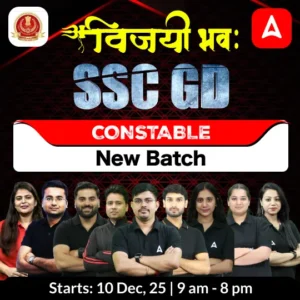PSTET Syllabus 2023
The PSTET Syllabus 2023 was released along with the PSTET 2023 Notification. For the convenience of the candidates, we have shared the detailed PSTET Syllabus 2023 in the article below. The PSTET Syllabus 2023 will help the candidates to plan and prepare well for the upcoming exams. Candidates who wish to pursue a career in teaching can appear for the PSTET Exam.
PSTET Syllabus
The PSTET Exam consists of two papers- Paper I and Paper II. In this article, we have provided the detailed PSTET Syllabus for both Paper I and Paper II. This will help the candidates to streamline their preparation and achieve a good score in the PSTET Exam. We have also shared the PSTET Syllabus PDFs so that candidates can download the syllabus and memorize it well.
Paper I is for those candidates who wish to teach the students of classes I to V. Paper II is for those candidates who wish to teach the students of classes VI to XII. Candidates can check the detailed paper-wise PSTET Syllabus 2023 below.
PSTET Syllabus 2023 Overview
Before checking the PSTET Syllabus 2023, candidates should go through the PSTET Syllabus 2023 Overview in order to get an idea of the PSTET Exam 2023.
| PSTET Syllabus 2023 Overview | |
| Exam Name | Punjab State Teachers Eligibility Test |
| Conducting Body | PSEB |
| Post | Primary and Secondary Teachers |
| Exam Mode | Written |
| Number of Papers | Paper I & Paper II |
PSTET Syllabus 2023 for Paper I
PSTET Paper I is conducted for candidates who want to teach the primary section,i.e., classes I to V. The topics included in PSTET Paper I are:
- Child Development and Pedagogy
- Language- I (Punjabi)
- Language II (English)
- Mathematics
- Environmental Studies
Child Development and Pedagogy
The topics and sub-topics under this section are as follows:
Child Development (Primary School Child)- Concept of development and its relationship with learning; Principles of development of children; Influence of Heredity and Environment; Piaget, Kohlberg, and Vygotsky: constructs and critical perspectives; Socialization Processes: Social world & children (Teachers, Parents, and Peers); Concepts of child-centered and progressive education; Critical perspective of the construct of Intelligence; Multi-Dimensional Intelligence; Language and Thought; Gender as a social construct: gender roles, gender-bias, and educational practice; Individual differences among learners; understanding differences based on diversity of language, caste, gender, community, religion, etc; the distinction between Assessment for learning and assessment of learning; School-Based Assessment, Continuous and Comprehension Evaluation; Perspective and practice, formulating appropriate questions for assessing the readiness levels of learners.
Concept of Inclusive Education and understanding children with special needs- Addressing learners from diverse backgrounds including disadvantaged and deprived; Addressing the needs of children with learning difficulties, impairment, etc.; and Addressing the Talented, Creative, Specially abled learners
Learning and Pedagogy- How children think and learn; how and why children ‘fail’ to achieve success in school performance; Basic processes of teaching and learning; children’s strategies of learning; learning as a social activity; social context of learning; Child as a problem solver and a ‘scientific investigator’; Alternative conceptions of learning in children, understanding children’s ‘errors’ as significant steps in the learning process; Cognition and Emotions; Motivation and Learning; and Factors contributing to learning Personal and environmental.
Language- I (Punjabi)
In this section, there are two parts- Language Comprehension and Pedagogy of Language development. Check the detailed syllabus for the same below.
Language Comprehension – Reading unseen passage two passages: one prose/drama and one poem with questions on comprehension, inference, grammar, and verbal ability (Prose passage may be literary, scientific, narrative, or discursive)
Pedagogy of Language Development- Learning and Acquisition; Principles of Language teaching; Role of listening and speaking; The function of language and how children use it as a tool; Critical Perspective on the role of grammar in learning a language for communicating ideas verbally or in written form; Challenges of teaching language in a diverse classroom; Language difficulties, errors, and disorders
Language skills; Evaluating language comprehension and proficiency: Listening, Speaking, Reading, and Writing; Teaching-Learning Materials: Text-books, multi-media materials, multilingual resources of the classroom; and Remedial Teaching.
Language- II (English)
The topics under this section are- Comprehension and Pedagogy of Langauge Development.
Comprehension- Two unseen prose passages (discursive/literary/narrative/scientific) with questions on comprehension, grammar, and verbal ability
Pedagogy of Language Development- Learning and Acquisition; Principles of Language teaching; Role of listening and speaking; The function of language and how children use it as a tool; Critical Perspective on the role of grammar in learning a language for communicating ideas verbally or in written form; Challenges of teaching language in a diverse classroom; Language difficulties, errors, and disorders
Language skills; Evaluating language comprehension and proficiency: Listening, Speaking, Reading, and Writing; Teaching-Learning Materials: Text-books, multi-media materials, multilingual resources of the classroom; and Remedial Teaching.
Mathematics
There will be two parts in this section- Content and Pedagogical Issues.
Content- Geometry; Shapes & Spatial Understanding; Solids around Us; Numbers; Addition and Subtraction; Multiplication; Division; Measurement; Weight; Time; Volume; Data Handling; Patterns; and Money.
Pedagogical Issues – Nature of Mathematics/Logical thinking; understanding children’s thinking and reasoning patterns and strategies for making meaning and learning; Place of Mathematics in Curriculum; Language of Mathematics; Community Mathematics; Evaluation through formal and informal methods; Problems of Teaching; Error analysis and related aspects of learning and teaching; and Diagnostic and Remedial Teaching.
Environmental Studies
There will be two parts in this section- Content and Pedagogical Issues.
Content- Family and Friends; Relationships; Work and Play; Animals; Plants; Food; Shelter; Water; Travel; and Things we Make and Do.
Pedagogical Issues- Concept and scope of EVS; Significance of EVS integrated EVS; Environmental Studies & Environmental Education; Learning Principles; Scope & relation to Science & Social Science; Approaches of presenting concepts; Activities; Experimentation/Practical Work; Discussion; CCE; Teaching material/Aid; and Problems of Teaching.
PSTET Syllabus 2023 for Paper II
The PSTET Paper II is conducted for candidates who want to teach the upper primary section,i.e., classes VI to XII. The topics included in PSTET Paper II are:
- Child Development and Pedagogy
- Language- I (Punjabi)
- Language II (English)
- Mathematics & Science
- Social Science
Check the detailed PSTET Syllabus 2023 for Paper II below.
Child Development and Pedagogy
In this topic, there are three parts- Child Development, the Concept of Inclusive Education, and understanding children with special needs and Learning and Pedagogy. Candidates can check the detailed syllabus for both below.
Child Development (Primary School Child)- Concept of development and its relationship with learning; Principles of development of children; Influence of Heredity and Environment; Piaget, Kohlberg, and Vygotsky: constructs and critical perspectives; Socialization Processes: Social world & children (Teachers, Parents, and Peers); Concepts of child-centered and progressive education; Critical perspective of the construct of Intelligence; Multi-Dimensional Intelligence; Language and Thought; Gender as a social construct: gender roles, gender-bias, and educational practice; Individual differences among learners; understanding differences based on diversity of language, caste, gender, community, religion, etc; the distinction between Assessment for learning and assessment of learning; School-Based Assessment, Continuous and Comprehension Evaluation; Perspective and practice, formulating appropriate questions for assessing the readiness levels of learners.
Concept of Inclusive Education and understanding children with special needs- Addressing learners from diverse backgrounds including disadvantaged and deprived; Addressing the needs of children with learning difficulties, impairment, etc.; and Addressing the Talented, Creative, Specially abled learners
Learning and Pedagogy- How children think and learn; how and why children ‘fail’ to achieve success in school performance; Basic processes of teaching and learning; children’s strategies of learning; learning as a social activity; social context of learning; Child as a problem solver and a ‘scientific investigator’; Alternative conceptions of learning in children, understanding children’s ‘errors’ as significant steps in the learning process; Cognition and Emotions; Motivation and Learning; and Factors contributing to learning Personal and environmental.
Language- I (Punjabi)
In this section, there are two parts- Language Comprehension and Pedagogy of Language development. Check the detailed syllabus for the same below.
Language Comprehension – Reading unseen passage two passages: one prose/drama and one poem with questions on comprehension, inference, grammar, and verbal ability (Prose passage may be literary, scientific, narrative, or discursive)
Pedagogy of Language Development- Learning and Acquisition; Principles of Language teaching; Role of listening and speaking; The function of language and how children use it as a tool; Critical Perspective on the role of grammar in learning a language for communicating ideas verbally or in written form; Challenges of teaching language in a diverse classroom; Language difficulties, errors, and disorders
Language skills; Evaluating language comprehension and proficiency: Listening, Speaking, Reading, and Writing; Teaching-Learning Materials: Text-books, multi-media materials, multilingual resources of the classroom; and Remedial Teaching.
Language- II (English)
The topics under this section are- Comprehension and Pedagogy of Langauge Development.
Comprehension- Two unseen prose passages (discursive/literary/narrative/scientific) with questions on comprehension, grammar, and verbal ability
Pedagogy of Language Development- Learning and Acquisition; Principles of Language teaching; Role of listening and speaking; The function of language and how children use it as a tool; Critical Perspective on the role of grammar in learning a language for communicating ideas verbally or in written form; Challenges of teaching language in a diverse classroom; Language difficulties, errors, and disorders
Language skills; Evaluating language comprehension and proficiency: Listening, Speaking, Reading, and Writing; Teaching-Learning Materials: Text-books, multi-media materials, multilingual resources of the classroom; and Remedial Teaching.
Mathematics & Science
The syllabus for Mathematics is as follows:
Content- Number System: Knowing our Numbers, Playing with Numbers, Whole Numbers, Negative Numbers, Integers, Fractions; Algebra: Introduction to Algebra, Ratio, and proportion, Geometry: Basic Geometrical Ideas (2-D), Understanding Elementary Shapes (2-D and 3-D), Symmetry: (reflection), Construction (using Straight edge Scale, protractor, compasses); Mensuration; and Data Handling.
Pedagogical Issues- Nature of Mathematics/Logical thinking; Place of Mathematics in Curriculum; Language of Mathematics; Community Mathematics; Evaluation; Remedial Teaching; and Problem of Teaching.
The syllabus for Science is as follows:
Content- Food: Sources of food, Components of food, Cleaning food; Materials: Materials of daily use, The world of the living, Moving things, people, and ideas; How things work: Electric currents, Circuits Magnets; Natural Phenomena; and Natural Resources.
Pedagogical Issues- Nature & Structure of Sciences; Natural Science/Aims & objectives; Understanding & Appreciating Science; Approaches/Integrated Approach; Observation/Experiment/Discovery (Method of Science); Innovation; Text Material/Aids; Evaluation – cognitive/psychomotor/affective; Problems; and Remedial Teaching.
Social Science
Social Science includes four subjects- History, Geography, Social and Political Science, and Pedagogical Issues.
History- When, Where, and How; The Earliest Societies; The First Farmers and Herders; The First Cities; Early States; New Ideas; The First Empire; Contacts with Distant Lands; Political Developments; Culture and Science; New Kings and Kingdoms; Sultans of Delhi; Architecture; Creation of an Empire; Social Change; Regional Cultures; The Establishment of Company Power; Rural Life and Society; Colonialism and Tribal Societies; The Revolt of 1857-58; Women and Reform; Challenging the Caste System; The Nationalist Movement; and India After Independence.
Geography- Geography as a social study and as a science; Planet: Earth in the solar system; Globe; The environment in its totality: natural and human environment; Air; Water; Human Environment: settlement, transport, and communication; Resources: Types-Natural and Human; and Agriculture.
Social and Political Life- Diversity; Government; Local Government; Making a Living; Democracy; State Government; Understanding Media; Unpacking Gender; The Constitution; Parliamentary Government; The Judiciary; and Social Justice and the Marginalized.
Pedagogical Issues- Concept & Nature of Social Science/Social Studies; Class Room Processes, activities, and discourse; Developing Critical thinking; Inquiry/Empirical Evidence; Problems of teaching Social Science/Social Studies; Sources – Primary & Secondary; Projects Work; and Evaluation.
PSTET Syllabus PDF
Candidates should be very thorough with the syllabus. As the syllabus will be their guiding light during the preparation course. Candidates can download the PSTET Syllabus PDF from the table below for both Paper I & Paper II.
| Topics | PSTET Syllabus PDF |
| PSTET Syllabus PDF for Paper I | Click Here |
| PSTET Syllabus PDF for Art & Craft | Click Here |
| PSTET Syllabus PDF for Physical Education | Click Here |
| PSTET Syllabus PDF for Home Science | Click Here |
| PSTET Syllabus PDF for Music | Click Here |
| PSTET Syllabus PDF for Sanskrit | Click Here |
| PSTET Syllabus PDF for Urdu | Click Here |
| Check Related links: | |
| PSTET Notification 2023 | PSTET Exam Pattern 2023 |
| PSTET Exam Date 2023 | PSTET Result 2023 Paper 1 Link |

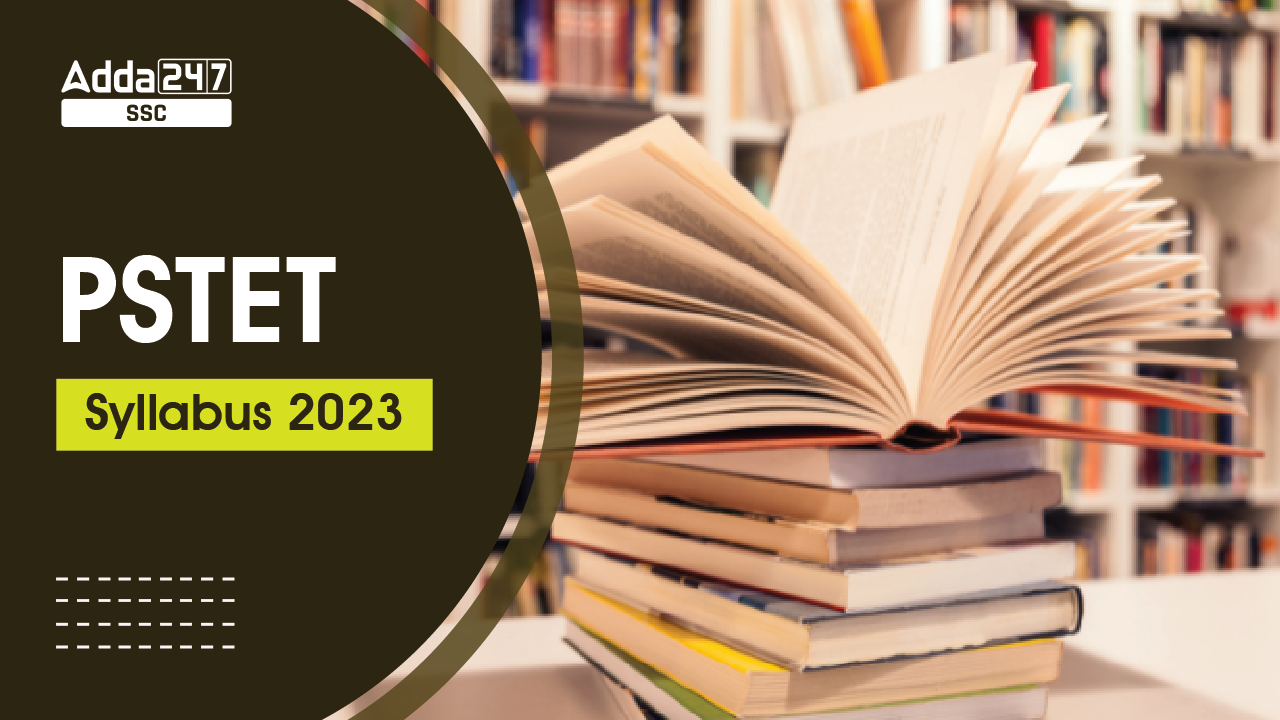
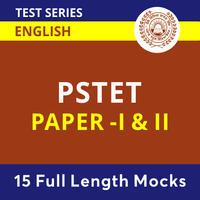

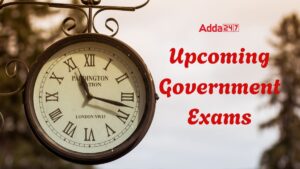 Upcoming Government Exams, Complete Govt...
Upcoming Government Exams, Complete Govt...
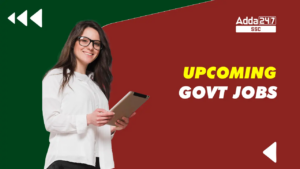 Govt Jobs 2025, Latest Upcoming Governme...
Govt Jobs 2025, Latest Upcoming Governme...
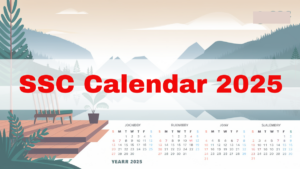 SSC Exam Calendar 2025–26 Out, Check All...
SSC Exam Calendar 2025–26 Out, Check All...
